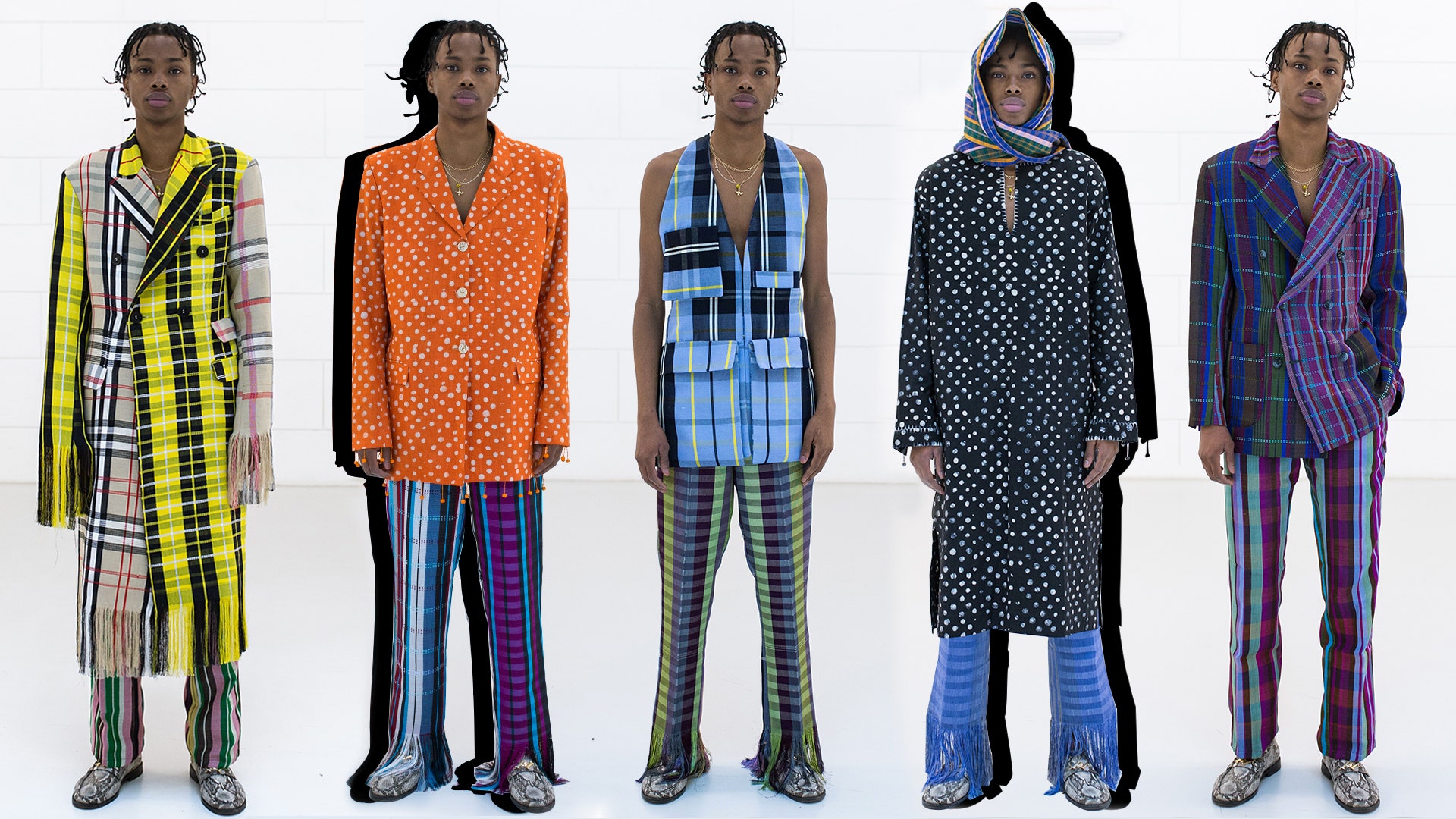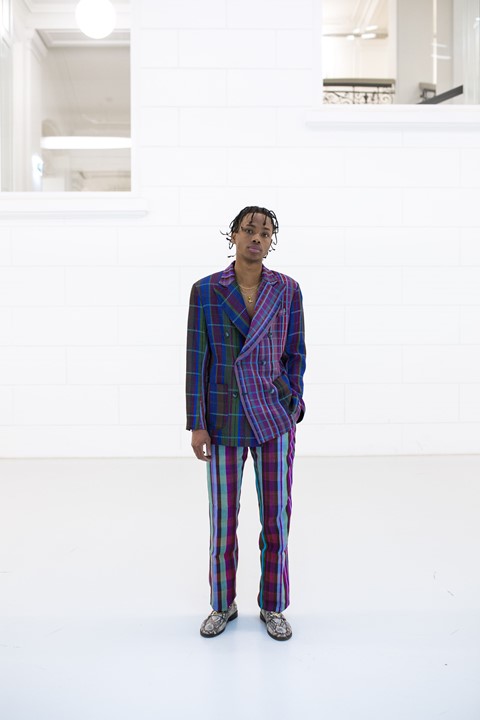
KENNETH IZE: IS IT FINALLY NIGERIA'S TURN?
Nigerian designer Kenneth Ize proposes, through his eponymous brand, a revolutionary discourse that combines fashion and politics. A space for social reflection in which craftsmanship and sustainability take centre stage.

- Since LVMH announced the finalists for its 2019 award, Kenneth Ize's life has undergone a dramatic change.
- The Nigerian designer is at the helm of a brand that champions African innovation and progress.
When Kenneth Ize made his debut at Paris Fashion Week just over a year ago, with Iman and Naomi Campbell in tow, the press and networks went wild. His colourful striped garments were, for most, a breath of fresh air and a change of mentality.
In fact, the celebrated fabric of his initial designs is called asoke, and it is traditional Nigerian. This asoke is a heritage craft of Yoruba origin that Ize seeks to preserve through his work.
Ize has only reformulated it to suit her own identity, which was shaped between Austria (where he grew up after her family had to go into exile because of the war) and her native Lagos.
Although difficult, this Nigerian designer always had in mind creating his own brand, as he was confident on developing his own raw material, convinced that's where the real authenticity of a designer lies.
Completely convinced of himself, he began a project that, beyond a successful brand, is proof that fashion can be a powerful tool for change.
The label is devoted to the long-established traditions of Nigerian craft and local artisanship, merging a new design with a specifically local handcraft practice.
There is the strong belief that in exploring and nurturing existing cultures, one opens up an exciting territory for creating and inspiring future traditions, as Kenneth Ize does.
Ize has a factory in Ilorin, a small town in northern Nigeria, which employs 30 craftsmen.
His team -or, as he likes to call them, his community- creates handmade fabrics that straddle history and innovation, which are then cut and assembled in Italian factories.
Since in Nigeria they run out of electricity and water all the time, the system implemented in Ilorin is designed for being self-sufficient from generators; in such a way that craftsmen just have to sit down with their machine and create.
It doesn't matter that there is no electricity, because the artisans only need their hands to shape them.
The kind of genderless garments produced by Kenneth Ize also initiate a hitherto unimaginable debate in Nigeria, where activism is generally silenced.
As such, Ize supports a small community of weavers, and work directly with a variety of artisan and design groups across Nigeria.
The result is garments that straddle two cultures, Nigerian folklore and European tailoring.
After several seasons of showing at the increasingly prestigious Lagos Fashion Week, Ize began to receive praise and awards in the West - being a finalist for the LVMH prize in 2020 or entering the Parisian calendar.
He has invested everything in growing her community. In fact, his life has not been easy, as it is demonstrated through his first garments, which were donated through Gofundme.
You can see the craftsmanship immediately in coats made from colourful aso-oke plaid or in the kaftans made from adire, an indigo-dyed fabric that has been made in Nigeria for centuries.
Kenneth Ize is more than colours and shapes. He is a designer who is bringing Nigerian traditions to a global stage.

